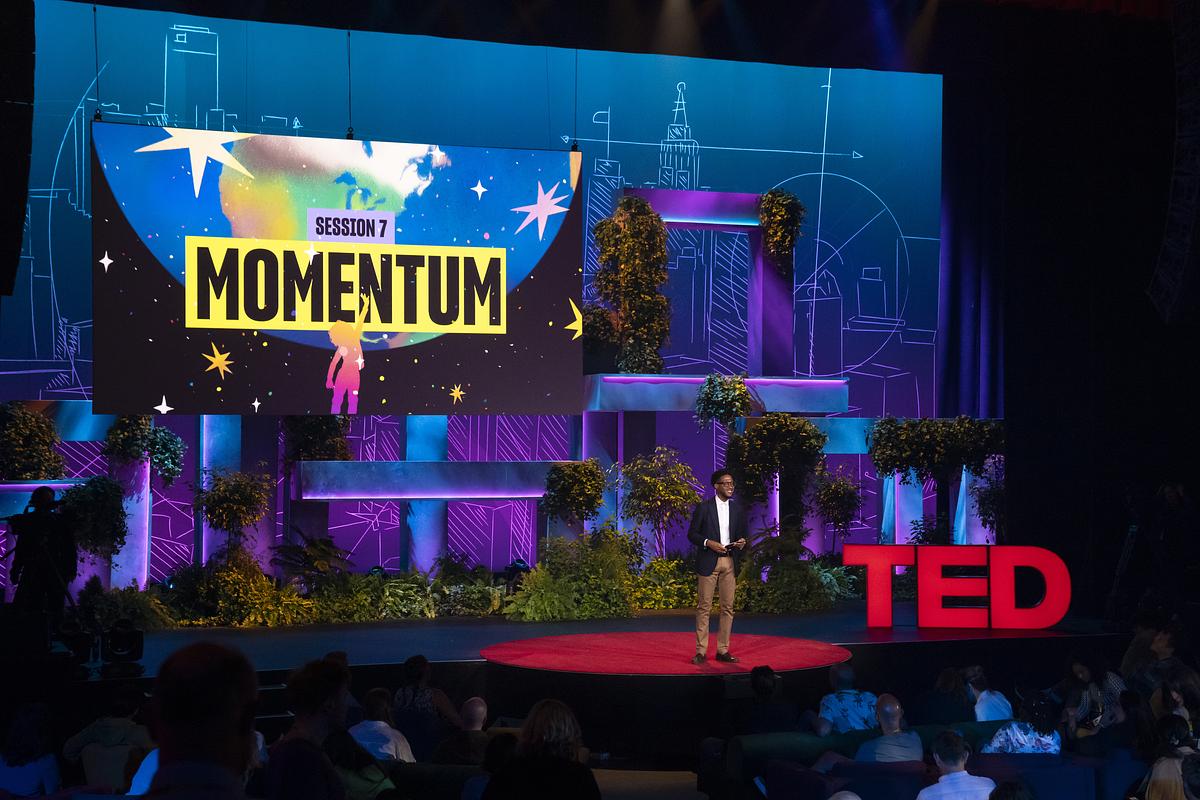
Journalist Orlando P. Bailey hosts Session 7 of TED Countdown Summit on July 14, 2023, at the Fillmore Detroit in Detroit, Michigan. (Photo: Gilberto Tadday / TED)
TED Countdown Summit 2023 concluded with a wide-ranging session featuring eight inspiring takes from around the world on how to ensure a fast, fair transition to a clean energy future.
The event: Talks from Session 6 of TED Countdown Summit 2023, hosted by TED’s David Biello and Lindsay Levin with journalist Orlando P. Bailey.
When and where: Friday, July 14, 2023, at the Fillmore Detroit in Detroit, Michigan
Speakers: Kala Constantino, Rebecca Collyer, Rich Powell, Zainab Usman, Amir Nizar Zuabi, Sims Witherspoon, Ramón Méndez Galain, Mike Posner
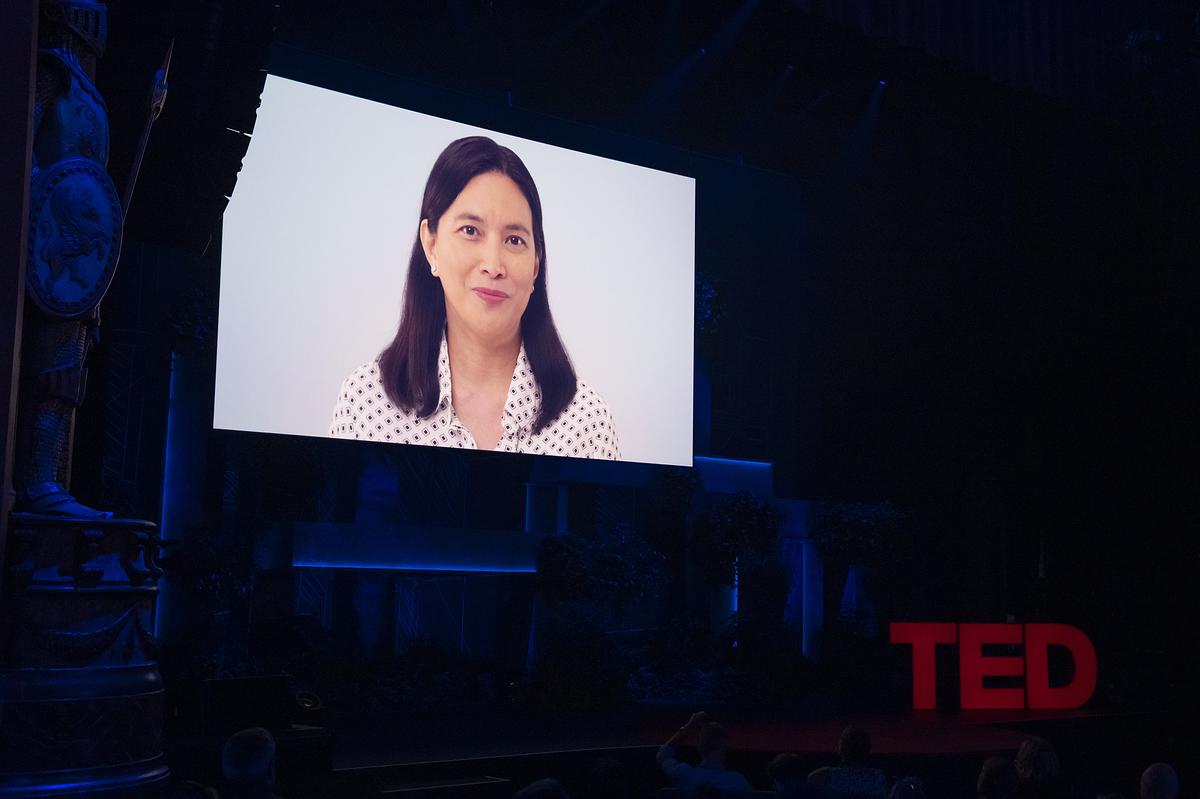
Clean energy advocate Kala Constantino speaks at Session 7 of TED Countdown Summit on July 14, 2023, at the Fillmore Detroit in Detroit, Michigan. (Photo: Gilberto Tadday / TED)
There’s a green energy wave swelling in the Philippines. Kala Constantino, director of the ecology advocacy group Tara Climate Foundation introduces us to a cross-section of the actors working to build a grid for cheap and clean renewable power throughout Asia. Electricity consumers in the Philippines pay one of the highest bills in Southeast Asia due to imported fossil fuels. Yet, as an island nation, the country also loses hundreds of millions of dollars every year to the impacts of climate disasters aggravated by carbon emissions. Activists have already encouraged the government to set aside funds for renewables and slow down the construction of coal-fired plants. With their help, Constantino hopes to see the Philippines become energy independent through solar and wind power, which will not only reduce electricity costs but also create jobs in a new, profitable sector.
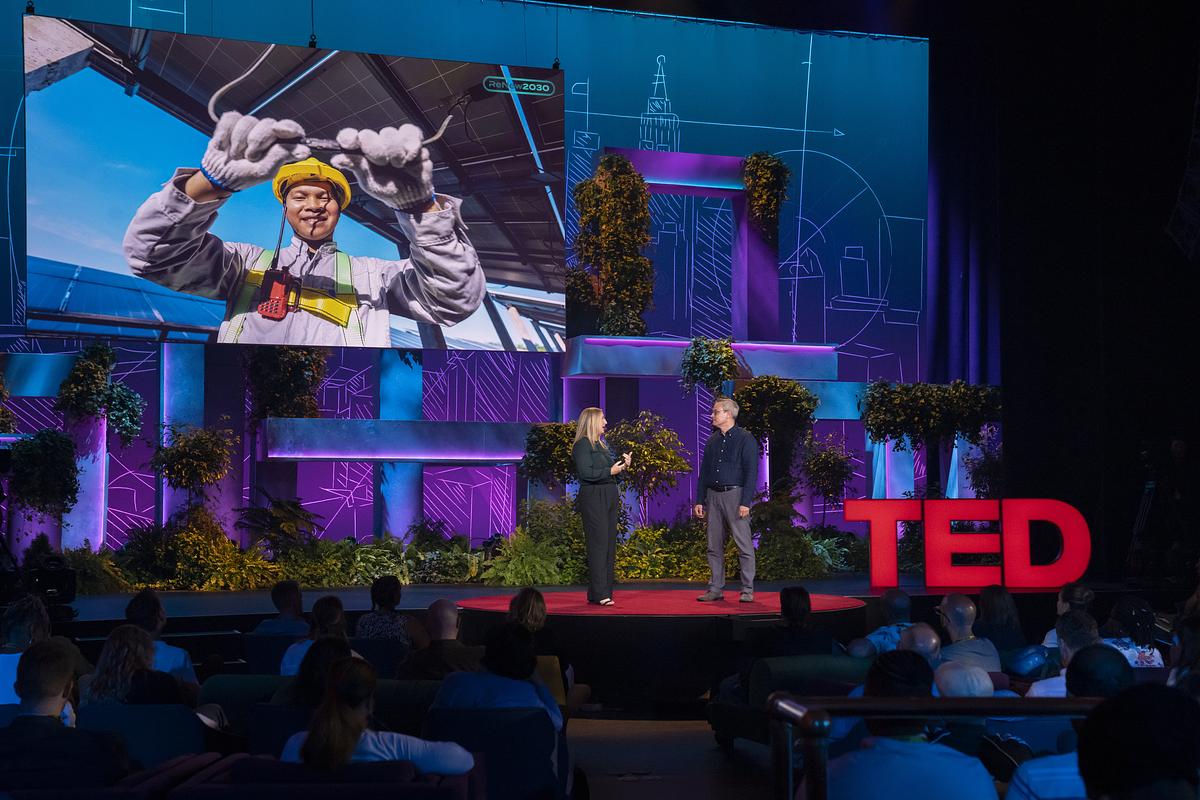
Renewable energy strategist Rebecca Collyer and TED’s David Biello speak at Session 7 of TED Countdown Summit on July 14, 2023, at the Fillmore Detroit in Detroit, Michigan. (Photo: Gilberto Tadday / TED)
Rebecca Collyer is the executive director of 2023 Audacious Project grantee ReNew2030, a global coalition to scale the use of wind and solar energy. In conversation with TED science curator David Biello, Collyer explores how to ensure the transition to renewable energy is fast and fair — a crucial task, as the power sector produces more carbon emissions than any other sector in the world. She shows how, by mobilizing governments, businesses and local communities around the world, ReNew2030 aims to scale wind and solar power capacity by 2030 and set the world up for a climate-secure future — all while creating local jobs and clean air.
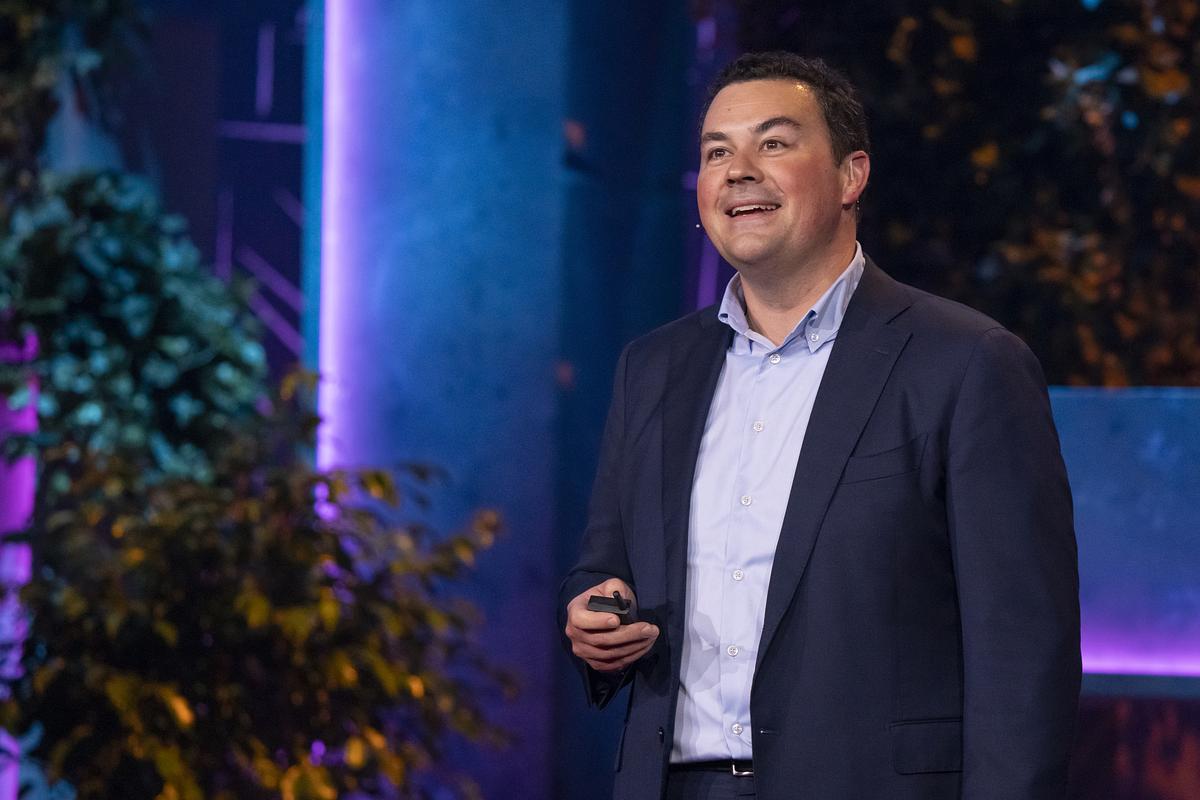
Climate innovation leader Rich Powell speaks at Session 7 of TED Countdown Summit on July 14, 2023, at the Fillmore Detroit in Detroit, Michigan. (Photo: Jasmina Tomic / TED)
We’ve all heard of the dangers of NIMBY-ism (“not in my backyard”). Climate innovation leader Rich Powell takes it a step further, saying that the true barrier to immediate implementation of clean energy projects is BANANA-ism: “build absolutely nothing anywhere near anything.” This means that critical infrastructure like windmills, nuclear plants and flexible power grids can get bogged down for years in the permitting process — or killed by wealthy lobbyists seeking to keep wind farms or solar panels away from their property. Powell believes that the quickest way to solve our clean energy crisis is to remove these barriers, while keeping environmental protections like the Clean Water Act. If voters and regulators can find common ground, then he says we’ll be well on our way toward replacing our existing power grid with one focused on renewables.
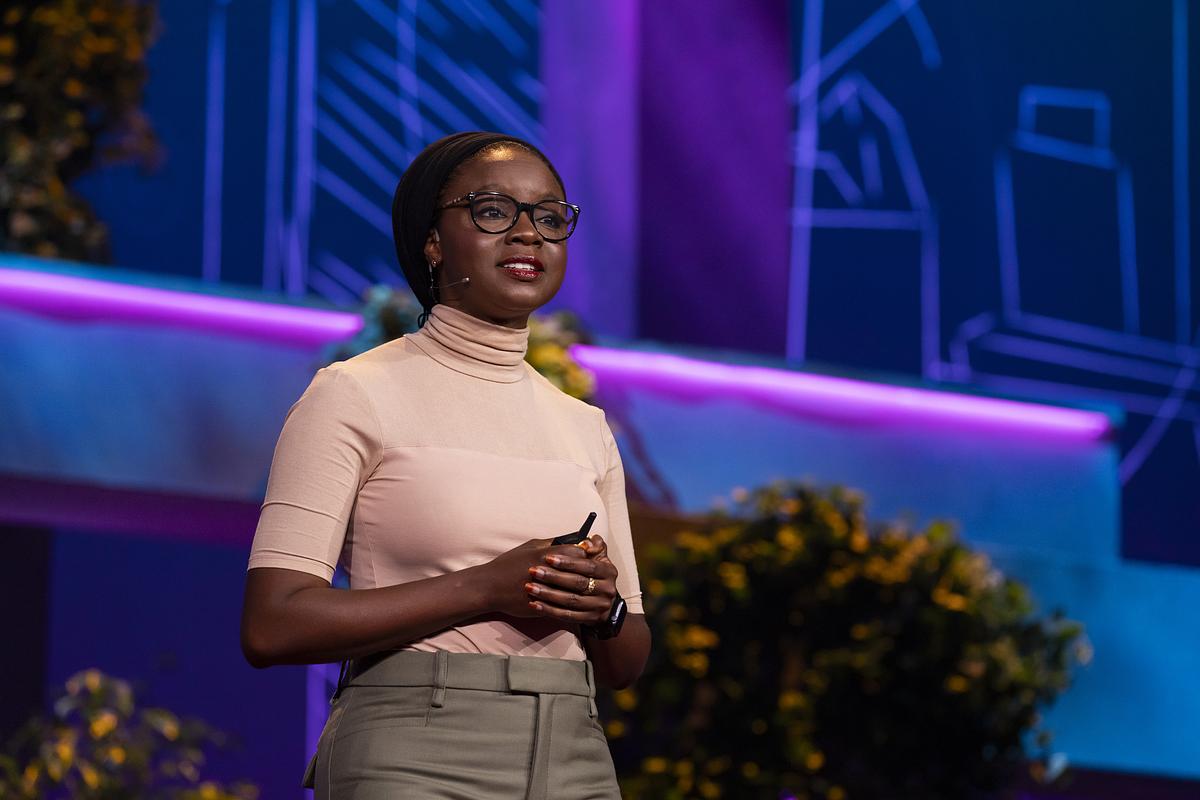
Political economist Zainab Usman speaks at Session 7 of TED Countdown Summit on July 14, 2023, at the Fillmore Detroit in Detroit, Michigan. (Photo: Gilberto Tadday / TED)
Solving the climate crisis requires collective action on a global scale, but today’s economy is becoming fractured between four regions: the US, China, Europe and the rest of the world. Political economist Zainab Usman says the solution lies with policymakers, business leaders and activists. Working together worldwide, they can distribute low-carbon technology globally; prioritize consumer welfare to make green tech more accessible; and set global standards to govern the sourcing of strategic, nonrenewable materials (such as the minerals in solar panels and other green products). With these goals, Usman says, we don’t have to live out the divided, dystopian future predicted by George Orwell and other such writers long before.
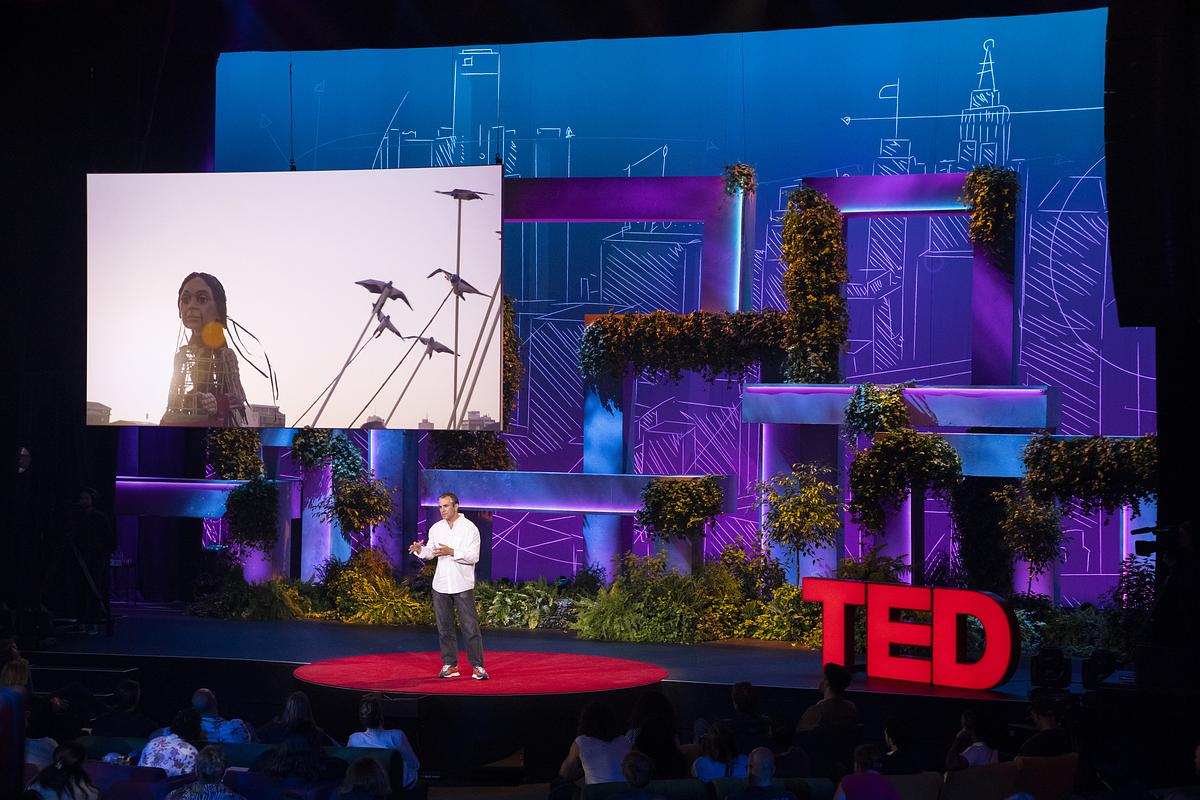
Theater writer and director Amir Nizar Zuabi speaks at Session 7 of TED Countdown Summit on July 14, 2023, at the Fillmore Detroit in Detroit, Michigan. (Photo: Jasmina Tomic / TED)
Tapping into the power of theater and its ability to turn pressing issues into human stories that spark hope, theater director and playwright Amir Nizar Zuabi shares the journey of Little Amal — a 10-year-old refugee girl (who is actually a 13-foot puppet) that went on an epic, 5,000-mile migration across eight countries in a globe-trotting art piece called “The Walk.” She embodied the broken global refugee system that has left so many people vulnerable and displaced. Inspired by the impact Little Amal had on the communities she passed through, Zuabi unveils for the first time his next piece: “The Herds,” a massive migration of animal puppets that will start in West Africa and end in Norway, set to begin their travels in 2025. Evolving as they move, the herds will take on new species native to each country they encounter, raising awareness about climate change and the threat it poses to animals and humans alike in a devastating, powerful and beautiful way.
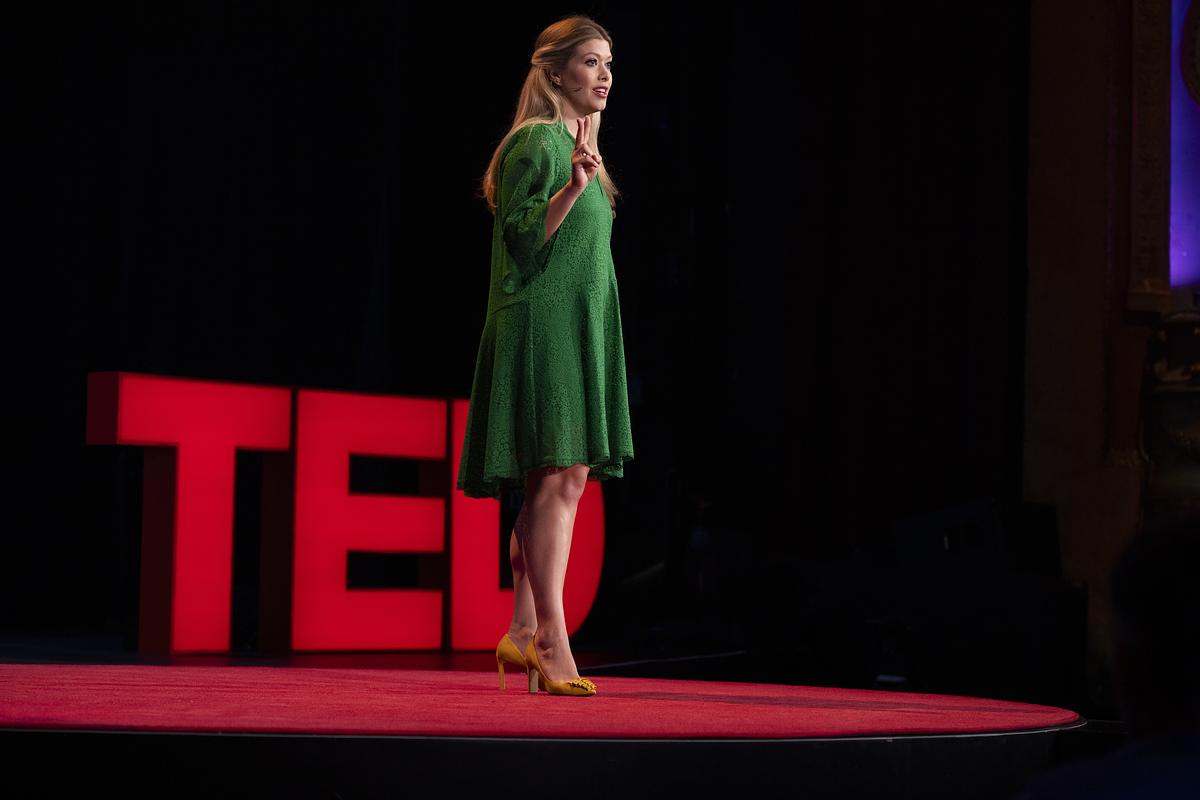
Applied AI climate scientist Sims Witherspoon speaks at Session 7 of TED Countdown Summit on July 14, 2023, at the Fillmore Detroit in Detroit, Michigan. (Photo: Gilberto Tadday / TED)
Sims Witherspoon wants to use artificial intelligence to tackle climate change. When building a sustainable future, she believes AI can help us better understand the impact of climate change on Earth’s ecosystems, accelerate the breakthrough science we need to create a carbon-free energy supply and speed up the transition to renewable energy sources. Witherspoon explains how she and her team recently partnered with Google to develop an AI that accurately predicts wind availability on one of Google’s wind farms. They trained a neural net on weather forecasts and Google’s historical turbine data and then deployed it on the wind farm to test its accuracy. Their AI ultimately performed 20 percent better than Google’s existing system, and Google has since decided to scale the technology — a win for the company and the planet.
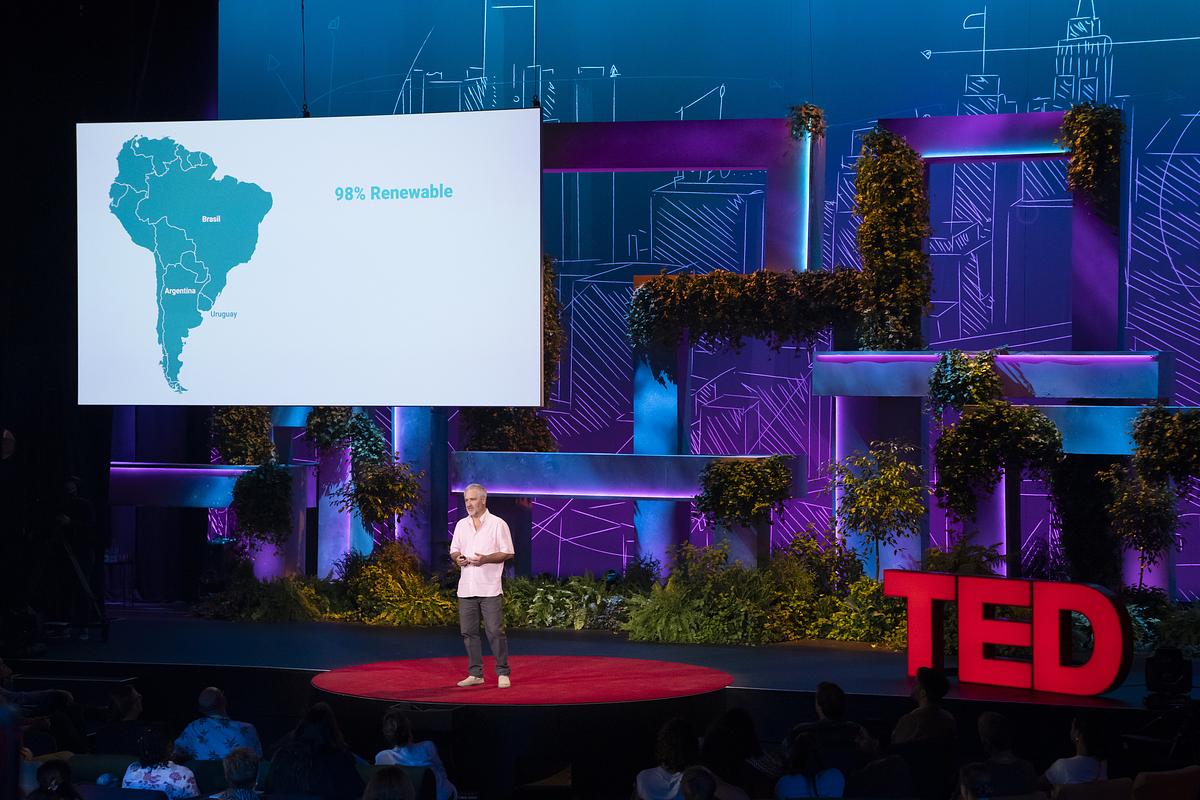
Just energy transition leader Ramón Méndez Galain speaks at Session 7 of TED Countdown Summit on July 14, 2023, at the Fillmore Detroit in Detroit, Michigan. (Photo: Jasmina Tomic / TED)
Fifteen years ago, Uruguay was experiencing an energy crisis; today, the tiny nation produces 98 percent of its electricity from renewable sources — and even exports extra energy to countries like Argentina and Brazil. Former particle physicist Ramón Méndez Galain charted the country’s transition to renewables as head of the country’s National Energy Agency. He shares how they achieved energy stability with widespread political support by shifting away from fossil fuels toward clean energy sources like wind, solar and sustainable biomass made from rice hulls, bagasse and pulp. Uruguay also developed technologies to predict the availability of intermittent sources, like wind and solar, to determine which energy sources to rely on and when. Although the transition required massive effort, coordination and innovation, the country can now depend on a stable, sustainable and, yes, profitable energy sector.
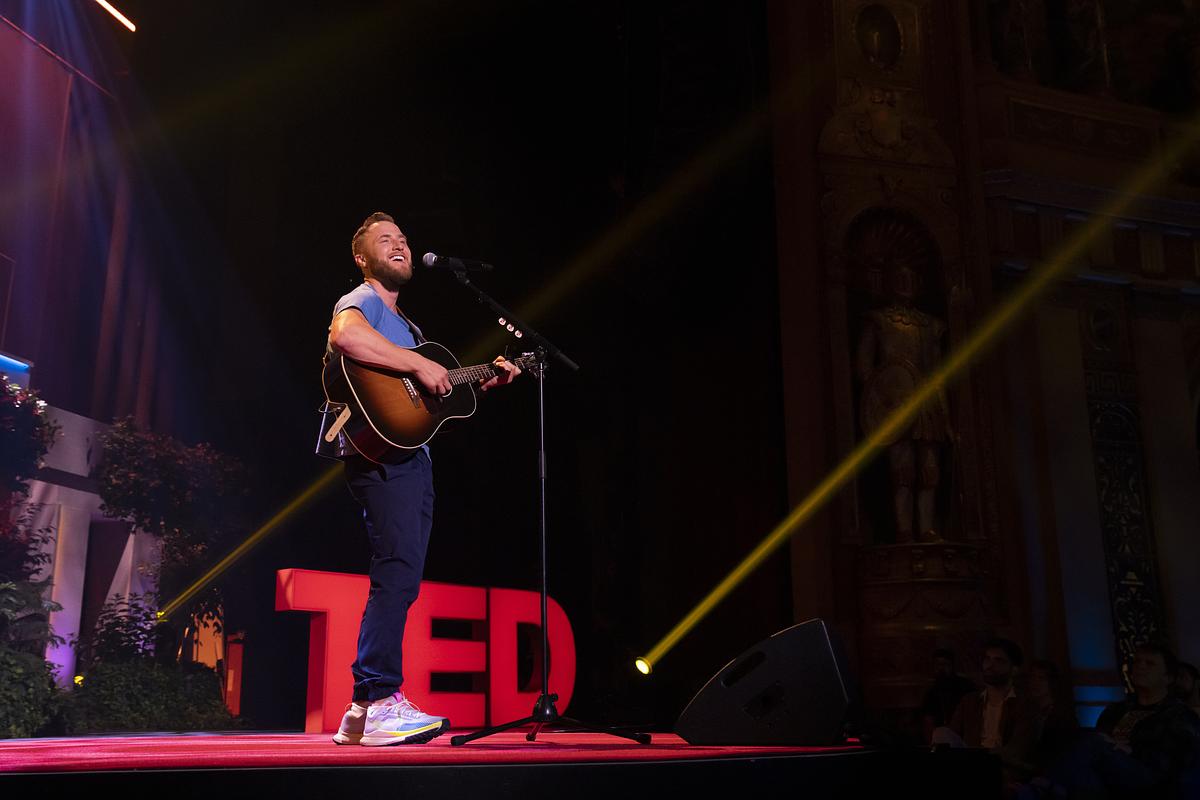
Singer/songwriter and producer Mike Posner performs at Session 7 of TED Countdown Summit on July 14, 2023, at the Fillmore Detroit in Detroit, Michigan. (Photo: Gilberto Tadday / TED)
Singer-songwriter Mike Posner performs two hit songs, “I Took a Pill in Ibiza” and “Could You Do the Same,” and delivers an inspiring talk about how he walked nearly 3,000 miles across the United States. A lot happened along the way, he says — including a life-threatening rattlesnake bite — but the journey left him with five crucial life lessons and a sense of deep, true happiness.
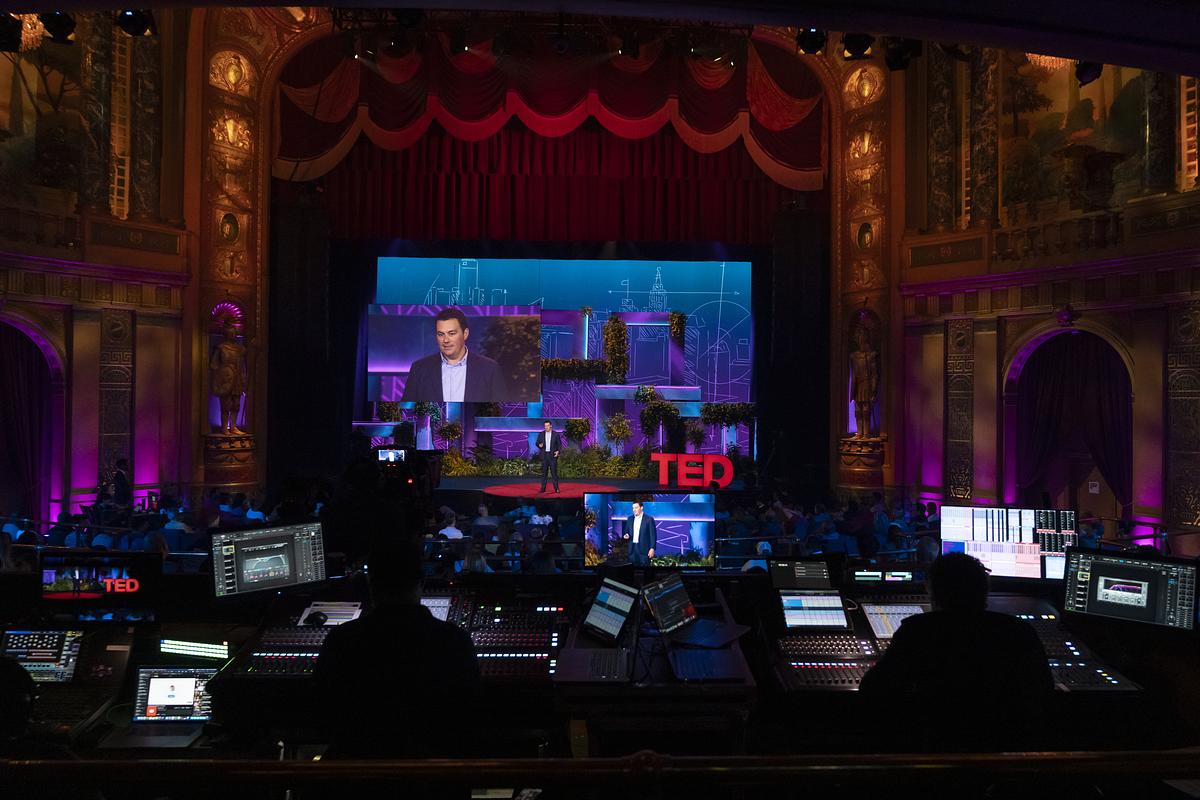
The TED control room during Session 7 of TED Countdown Summit on July 14, 2023, at the Fillmore Detroit in Detroit, Michigan. (Photo: Jasmina Tomic / TED)